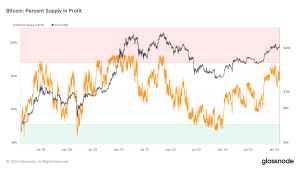The judge presiding over the SEC’s case against the decentralized publishing platform LBRY has ruled that the secondary sales of LBC do not qualify as the sale of securities.
Judge Rules Against SEC
The US Securities and Exchange Commission (SEC) has been pursuing legal action against the crypto company LBRY Inc. On January 30, the watchdog filed an appeal for an injunction order to prevent secondary sales of the LBRY Credits (LBC) cryptocurrency. However, the judge presiding over the matter has ruled that the secondary sale of these cryptos does not constitute the sale of a security.
Previous Judgement Favored SEC
The matter between the financial regulator and the crypto company started way back in March 2021, when the former filed a complaint against LBRY, accusing it of raising $11 million through the sale of the LBC token as an “unregistered security.” Even though LBRY did not offer tokens to the public in an initial coin offering (ICO), the SEC pointed out that the team had retained tokens for themselves in a ‘pre-mine,’ which were later released on secondary exchanges to fund operations.
The summary judgment of the court, in this case, favored the SEC, where the initial sale of the LBC tokens was classified as investment contracts. Encouraged by this ruling, the SEC appealed to the judiciary on Monday for a ruling that would prohibit all sales of LBC tokens.
‘Summary Judgment Not For Secondary Sales’
However, the plan backfired as the judge clarified that the previous ruling applied only to the direct sale of the token. In the case of secondary sales and security lawsuits in the U.S., no court had ever acknowledged an underlying asset as a security since the creation of the Howey Test. Reportedly, the judge clarified that the summary judgment does not apply to secondary market sales and that he would not be issuing the injunction sought by the SEC as it included secondary sales.
SEC Vs. Ripple
It has been a common approach for the SEC to accuse crypto companies of offering tokens as “unregistered securities.” The watchdog is already in an ongoing legal battle with leading cryptocurrency Ripple, alleging that the latter distributed its XRP tokens as unregistered securities. Therefore the recent ruling in the SEC vs. LBRY case could benefit Ripple, which had also never held an initial coin offering.
The SEC is already struggling in its case against Ripple, as recently, in September, the case judge ruled the Hinman documents to be admissible evidence. These documents prove that the SEC practiced selective enforcement actions and did not view XRP as the same as ETH.
Disclaimer: This article is provided for informational purposes only. It is not offered or intended to be used as legal, tax, investment, financial, or other advice.




















